Note: This text is primary based on a text by Vera Kencis which was published in Orthodox Life. It is supplemented in a few places by a text which was also based primarily on the text by Vera Kencis, which was distributed at the time of St. Jonah’s glorification. A few additional details were taken from the official Decree for the Glorification of St. Jonah. Some corrections of the names of places mentioned in this text have been made based on information from Dr. Jeremias Norman.
The path of Bishop Jonah's earthly life was short. Born in 1888, the boy Volodya Pokrovsky was only eight years old when he became an orphan. A kind village deacon took him in and helped him to acquire an education, first at a seminary in his native Kaluga and then at the Kazan Theological Academy. In his third year he received the monastic tonsure with the name Jonah and became a member of the Optina brotherhood. He was a brilliant student, and upon graduating he was elected to teach New Testament scriptures at the Academy, a position he reluctantly accepted in obedience to his spiritual father, the righteous Elder Gabriel.
In 1918 the Revolution forced the young hieromonk to leave Kazan. He was arrested by the communists and suffered beatings to the point of loss of consciousness, and imprisonment. Thus, sharing the fate of the New Confessors of Russia, by God's providence Hieromonk Jonah was freed by the White Army, which was situated beyond the Ural Mountains. Having been quickly raised to the rank of Igumen, he was assigned as the senior priest of the southern volunteer troops. With the army of Ataman Dutov, Fr. Jonah withdrew to the borders of Western China, being subjected to all kinds of hardships while crossing the Pamir cliffs, often forced to grab on to jagged ledges and the sparse shrubbery of the ice covered cliffs with wounded hands. After crossing the Gobi Desert, they finally reached Beijing, where Fr. Jonah was received into the Ecclesiastical Mission there and soon consecrated bishop for Manzhuria [St. Jonah was officially the bishop of Hankou, in the Hubei province, but actually ministered and worked in the town of Manzhuria].
At the time of his arrival in the fall of 1922, the border town of Manzhuria (present day Manzhouli, which is in the region of Manchuria) was bursting with Russian refugees who had barely any more than the clothes on their backs. The native populace helped as much as it could, but its resources were inadequate to meet the needs at hand; there was not even enough bread for the children. Existing charities were poorly organized, and the spiritual structure of the community was too weak to offer much support. Suddenly, the town was electrified. The transformation - both spiritual and physical - which Bishop Jonah effected in three short years with his flock, revealed his tremendous stature as a man of action, a man of prayer and an apostle of love. In that short time he established the following:
- An orphanage that held up to 30 children ranging from the ages of five to fourteen
- A children's school accommodating up to 500 students
- A dining hall for the poor, feeding up to 200 people daily
- Free ambulatory care and medicine for the poor of Manzhuria
- A library spiritually feeding the citizens of Manzhuria
He was a true archpastor.
The extraordinary dimensions of his field of activity and spiritual personality are described in memoirs written by his spiritual children and persons close to him. Alexey Ivanovitch Budeyev writes:
"What impressed me most were his broad horizon of interests, his tremendous intelligence, and his boundless love for people in general, with no distinction between classes or nationality. His special love was the children. In all my life I never met a man like him. He was indulgent toward all, even his enemies.
'When starting a new project he sometimes became involved with people of uncertain allegiance, who did not inspire much confidence. I tried to warn him, as the town of Manzhuria was only four miles from the Soviet border, and in my job I met people with different viewpoints and leanings. Bishop Jonah would look at me: for a moment a shadow would cross his face, but then his smile would take over again and he would say, 'That is all right, Alexey Ivanovitch; we will accept him with kindness, for if we reject him he will go to the Soviet Consul and surely become our enemy.
"The Bishop served magnificently; each word penetrated the heart of his listener. The Liturgy would end at noon or one o'clock, but no one would want to leave the church earlier. His sermons were delivered with great pathos; one could feel the great power of his words. Each sermon was different, and no one wanted to miss a single word.
"In his short time in Manzhuria, the church building was put into proper condition, an addition was built, everything was repaired or renovated. A high stone wall was erected around the church. An orphanage was founded, and a classical high school of seven grades and vocational classes was established; the best teachers to be found among the refugees were invited to teach. A large library was opened and books were gathered from all along the railway line. A soup kitchen was opened, as was a free health clinic staffed by good doctors.
"How did Bishop Jonah gather the necessary funds? When I introduced him to the district manager and the head of the administration, he made a very good impression and they donated money, flour and coal. In Harbin he paid a visit to the railroad administration, and the director of the Chinese Eastern Railroad Lines designated a monthly stipend of six hundred dollars. Often the Bishop held lectures at Harbin's Polytechnical Institute and in return he received railroad car loads of coal.
"When the Bishop attended the religion class and spoke to the students, the entire class was captivated. Asked afterwards what the Bishop had spoken about, any one of the students could accurately repeat the whole lesson. The students loved him more than their own parents. When he walked through the hallways of the school, the young ones would run to him. He would bless all from afar with a huge sign of the cross. The older students met him with respect and a smile, and always received a wise answer to their questions."
In collecting funds for his many projects, Bishop Jonah often traveled to Harbin where there was a sizeable Russian colony. He would stay with Archbishop Meletius at the Ecclesiastical Mission. It was there that Archimandrite Polycarp came to know him:
"When Bishop Jonah was appointed to Manzhuria, the people there were not pious; they did not love the Church or support it or the clergy. Bells rang to announce the beginning of the service, but the church remained empty until the Cherubic Hymn. It did not take long, however, for things to change. Bishop Jonah possessed a remarkable gift of speech. When he was speaking, he could be quite formidable, but he inspired and convinced. He spoke with such force that even those whose conscience was asleep would awake. Infrequently he would bang his staff, looking around as if to seek those who might be sleeping. At those times he seemed a stern accuser and it was fairly terrifying to stand before him.
“Bishop Jonah often came to visit us in Harbin. Usually he came right after the Liturgy, about ten o'clock. Archbishop Meletius would be having his tea; suddenly the doors would open and in would come Bishop Jonah with his childlike laugh. Archbishop Meletius would also smile and then start picking on him. 'What are you doing, acting like a fool-for-Christ? Honestly, why can you not have a more decent cassock; it is hanging in shreds, you ragamuffin!' Bishop Jonah would laugh: 'This is good enough for me; I have a lot of children who need to be fed and dressed.' The archbishop would invite him to the table for tea. After tea Bishop Jonah would drive into the city to visit some acquaintances-benefactors.
"The evening would again find both hierarchs deep in discussion. There were memories of the Kazan Academy, the professors, fellow students. Often Bishop Jonah would speak of his benefactress, the "Tea Queen Litvinova." She helped greatly; I do not think he would begin a new venture without consulting her. Those evening discussions lasted sometimes until midnight; I was ready to listen to those two angelic inhabitants of the earth until morning. Afterwards they went to rest. Bishop Jonah usually read the evening prayers. Occasionally they also read an akathist. The next day fund raising was again on the agenda. The Bishop never liked to stay too long, saying, 'I have the children, the church, the high school, the orphanage; I must go home.'
"In the matter of education, the Bishop often phoned the Soviet Consul, asking his help in supplying his orphanage and high school with the necessary paper, pens, pencils, chalk and slate boards. The consul was obstinate, but the Bishop would press his case: 'For whom am I asking?! These are your children; poverty is your child! I repeat: I need... (such and such). I ask that you send these things to me by eight o'clock tomorrow.' And he would hang up... The consul used to tell people close to him: 'If among us we had only five people like him, we could turn the whole world around.' Such was Bishop Jonah's impact."
In the words of I. Borosov, Bishop Jonah was "the ideal pastor":
“Bishop Jonah arrived and immediately galvanized all that was with withered and dying. There was a cafeteria, an orphanage and school, but they were in a poor state. He gave new life to the endeavors and they blossomed in the light of his massive energy, will power, ingenuity and intelligence. And he did it so seemingly effortlessly, as if he were playing divine music on the most ordinary instruments.
"He was exceptionally gifted. His mind, accustomed to constant and complex work, was always active. For days he would be subjected to extreme mental pressure, but never did any of his ideas remain incomplete or give any indication of not being thoroughly thought out.
"Another characteristic mental gift was Bishop Jonah's immediate perception of the essence of a question put to him, and his unerring solutions to the knottiest problems.
"By nature he was far removed from any kind of commercialism. Although by no means a businessman, Bishop Jonah displayed remarkable acumen and business strategy. It seemed that he was able to turn each dying enterprise into a flourishing one, whose profit would go to his ultimate purpose feeding and sheltering his orphans."
Raised without parental affection, Bishop Jonah was especially attentive to the needs of children battered by poverty and dislocation. One of his helpers at the orphanage, K. A. Terekhovskaya, describes his personal involvement in what was his favorite project, his "special child":
"... Vladyka's plans for the orphanage attained such colossal proportions as to defy comprehension. Only the power of faith and love helped him to overcome all the difficulties which stood in his way. Under his direction the orphanage grew very rapidly; at the end of the first year it numbered 28 orphans. The raising and educating of children in faith, active love and genuine Christian charity require the constant attention of instructors and guardians. These qualities were concentrated in Vladyka and his helpers.
"One of the principal occasions in the life of the orphanage was the annual fall collection of food stuffs, clothing and other necessities. On the Feast of the Protection of the Mother of Cod, after a short moleben and Vladyka's blessing, a chain of carts, accompanied by members of the Children's Sector, wound its way through the streets of Manzhuria. Posters called for donations. The carts returned to unload the donations and set off again. And this was repeated until late evening. The city's residents willingly donated surplus supplies they had prepared for winter, vegetables, produce, clothing, etc. When the collection was finished, those items necessary for the orphan age were separated out, while the rest were distributed to children of refugees who inhabited the city's outskirts in large numbers. The soup kitchen alone, organized by Vladyka, fed 200 refugee children daily. Vladyka himself took an active part in these collections; he fretted, emerging every few minutes from his quarters to inspect the donations brought by each cart, and helped the women sort through the collected goods.
"The second major event in the life of the orphanage was the summer departure of the children for vacation in one of the nearby villages on the East China railroad line, a station called Tzagan. The rail line connecting Manzhuria and Tzagan was managed jointly by the Chinese and Soviets. It was not easy to arrange free passage for the orphans and the staff. But thanks to Vladyka's persistence, the strength of his connections and his favorable relations with the Chinese administration, he was able to obtain free passage; provisions and other supplies were to be sent by carts. This is how it was the first year. The following year free passage was refused; only a school was offered for shelter.
"Tzagan, the place chosen by Vladyka, was lovely. On one side were mountains, not large; there was light, clean, sparkling sand; small shrubs; and in front stretched the steppe green and covered with feather-grass; there also wound the river Argun, the pride of west Manchuria, with a marvelous bottom for swimming. It was some 35 miles from the station, but neither the distance nor the difficulty of getting there, nor all the complications involved stopped Vladyka. The orphanage prepared to go with Vladyka in the lead on foot.
"The residents of Manzhuria, bowing before Vladyka's decision, came to the rescue, offering the use of their carts and their help.
"At five a.m. on the second day after Pentecost, twelve carts with drivers stood at the gates of the St. Innocent metochion, ready to be loaded with provisions, clothing and other necessities for the orphans.
"After a moleben and light breakfast at six o'clock, the orphanage set off. It was a touching caravan. Vladyka led the way in his usual grey cassock, a kamilavka on his windswept hair; he wore plain Chinese slippers and carried a staff. He was surrounded by children. Even the little ones refused to ride on the carts, preferring to walk alongside Vladyka. Behind them came the train of carts.
"It was a hot day; there was no sun but a warm wind blew from the steppe. A long road lay ahead. They had to cover twenty miles the first day to reach Tzhalainor where they planned to spend the night. They walked slowly, pausing for the first time at nine o'clock. After feeding the children and resting for an hour, they set off again, accompanied by the children's singing. At four o'clock they stopped for a hot meal and another rest. Although there was no direct sun, the wind blew and burned the skin, necessitating the use of medication. At last it was evident that the children were beginning to tire, and Vladyka likewise. They had to make several more short rest stops. Finally, at sunset, after eight o'clock, they came to the end of the first leg of their journey. Unaccustomed to such a long walk, everyone was glad of a chance to rest. There in Tzhalainor, sleeping quarters, a sauna and supper were prepared for them at the home of M. Okladinkov. They ate quickly and went to sleep, unsure of whether they would be able to continue the next day: everyone's feet ached and they had sunburns on their faces and bodies. The pharmacist was roused and measures were taken to alleviate the burns. After all, with the exception of the three youngest children, all had walked the entire way behind Vladyka. Everyone slept soundly. Vladyka gave orders to be ready by seven to continue the journey.
"Awaking the next morning at six o'clock, we discovered that Vladyka was gone. He had left at sunrise, but where no one knew. Having lost ourselves with guessing, we served the children breakfast, graciously prepared for them by the Okladnikovs. Suddenly, on the road, there appeared a procession of wagons. In the front one sat Vladyka. It turned out that he himself had not the strength to walk another twenty miles and had gotten up early to knock on doors and ask if people would not be willing to give the orphans a ride. The people gladly answered his request, and at eight o'clock, under the scorching rays of the sun, the orphanage moved towards its destination. The people of Tzhalainor accompanied the unusual caravan to the outskirts of the village, supplying the children with little pies and sweets.
"And so, as always, Vladyka found a solution to a difficult situation, and did not deprive the children of their vacation in the spaciousness of the steppe and swimming in the refreshingly cool water of the Argun.
"After Vladyka Jonah's repose, under his successor, Fr. Vladimir Izvolsky, the children spent only one more summer in Tzagan before they were refused living quarters and had to spend summers in Manchuria."
Death's arrival was unexpected. Bishop Jonah had been caring for a priest who died of typhoid fever. He himself contracted chronic tonsillitis just days before the scheduled fall collection for the orphanage. Suggestions to postpone it were of no use. Feverish, barely able to stand, Vladyka blessed the carts from the window of his study and remained there as the carts returned, calling each driver for a report on the result of his expedition.
Due to complications, Bishop Jonah developed blood poisoning. His doctor suggested he avail himself of the archbishop's presence to have confession and partake of the Holy Mysteries. Bishop Jonah understood that his hours were numbered. After having communed himself, he went into his study and typed out his final testament:
"...I began here with the words of the Apostle of Love: Children, love one another... And I am ending with these same words: Love one another. This is your archpastor's commandment.
"Do not abandon the children... Forgive me for the sake of Christ. Do not forget me in your holy prayers... And so until eternity when we shall all stand at the Dread Judgment."
Meanwhile, a moleben for the health of the Bishop was being served in the church. There one could hear the insistent cries of the children: "Dear God, please, do not take away our Vladyka!"
Returning to his room, Bishop Jonah individually blessed those tearfully crowded in his quarters. He then put on the epitrachilion and cuffs which had belonged to Elder Ambrose of Optina and began loudly and with prostrations, to read the canon for the departure of the soul. He asked to be buried in his white, embroidered vestments, simply, without pomp. Then, overcome with weakness, he lay down on his bed: "God's will be done. Now I shall die." He then was given a cross and candle to hold and died within minutes, surrounded by many of his close friends. His soul was transported to that other world, which knows neither sickness, nor sorrow, nor sighing, but life everlasting in the joy of the Lord
Manzhuria's entire populace – Orthodox and non-Orthodox alike – mourned the Bishop's death. It brought an immense moral loneliness, an emptiness which even grief failed to satisfy. The mass of burning candles at his gravesite reflected but dimly the light he had brought to the hearts of men. In this light his memory is preserved for all eternity.
His funeral was held by Archbishop Methodius. Many clergy and 8,000 prayerful people attended. (The population of Manzhuria at that time was 10,000.)
Leaving this world did not keep him from being with his spiritual children. A ten year old boy, Nicholas Dergachev, who was crippled, had been suffering from an inflammation of the knee joints. Efforts to straighten his legs caused unbearable pain. It was impossible for him to stand, much less walk. Early one morning he had a dream. A hierarch vested in white appeared to him and said, "Here, take my legs. I don't need them anymore. And give me yours." The boy woke up, miraculously healed. From a photograph he identified the hierarch in his dream as Bishop Jonah, who had died that very night, October 7/20, 1925.
The convening Council of Bishops of the Russian Orthodox Church Abroad, on August 20/31, 1996, blessed his glorification.
Through the prayers of our holy father Jonah, may the Lord God preserve us from every evil, strengthen our faith, and help us to journey upon the true path to salvation. To our God, who is wondrous in His saints, be all glory, honor and worship now and ever, and unto the ages of age. Amen.
 The Tomb of St. Jonah The Tomb of St. Jonah
|
 On December 6-7, 2012, the 300th anniversary of the Russian Ecclesiastical Mission in China was celebrated. Among the events were conferences, a book fair, a round table and divine services.
On December 6-7, 2012, the 300th anniversary of the Russian Ecclesiastical Mission in China was celebrated. Among the events were conferences, a book fair, a round table and divine services.

 This February 3rd marks the start of a new year in the Chinese lunar calendar. It is referred to as the Spring Festival in China, and marks the year of the Rabbit. (Twelve animals are designated through a 12-year cycle.)
This February 3rd marks the start of a new year in the Chinese lunar calendar. It is referred to as the Spring Festival in China, and marks the year of the Rabbit. (Twelve animals are designated through a 12-year cycle.)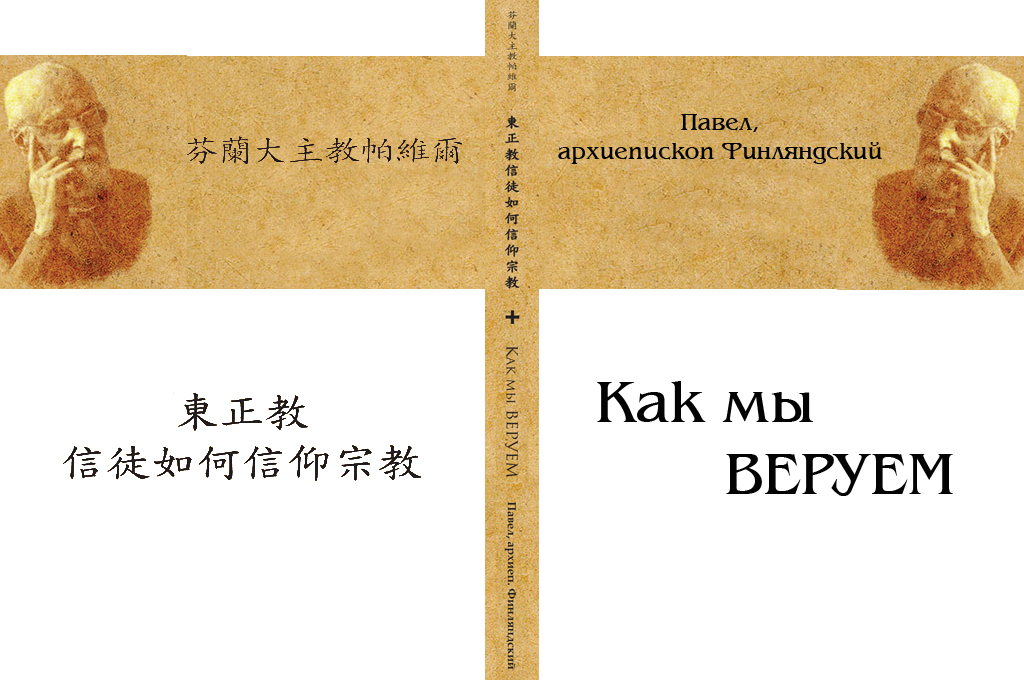
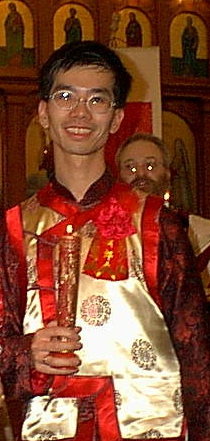
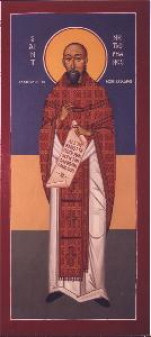
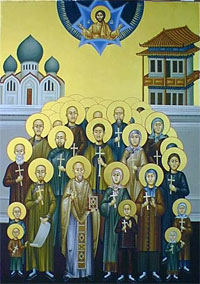
.jpg)
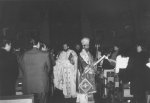
.jpg)
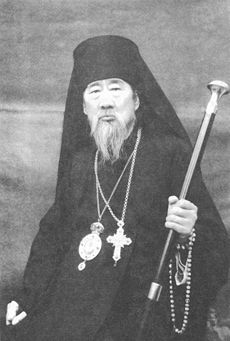

 The Tomb of St. Jonah
The Tomb of St. Jonah